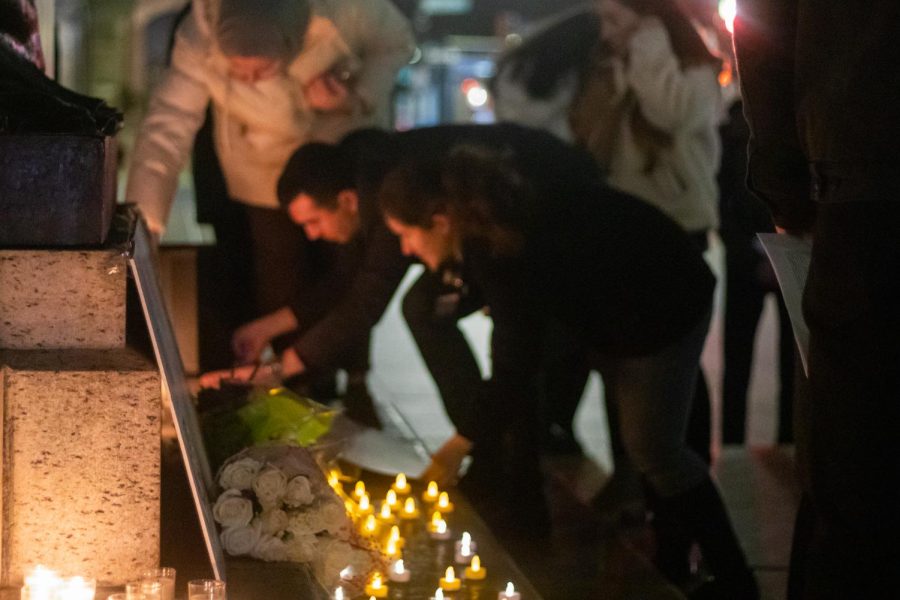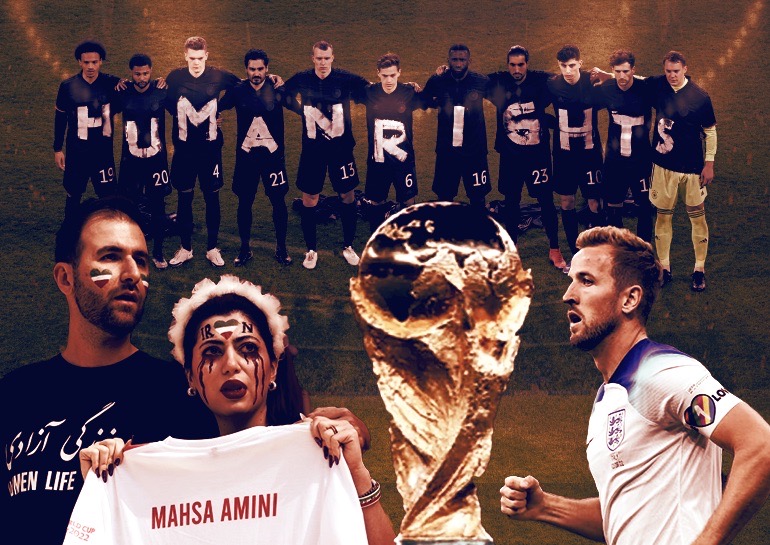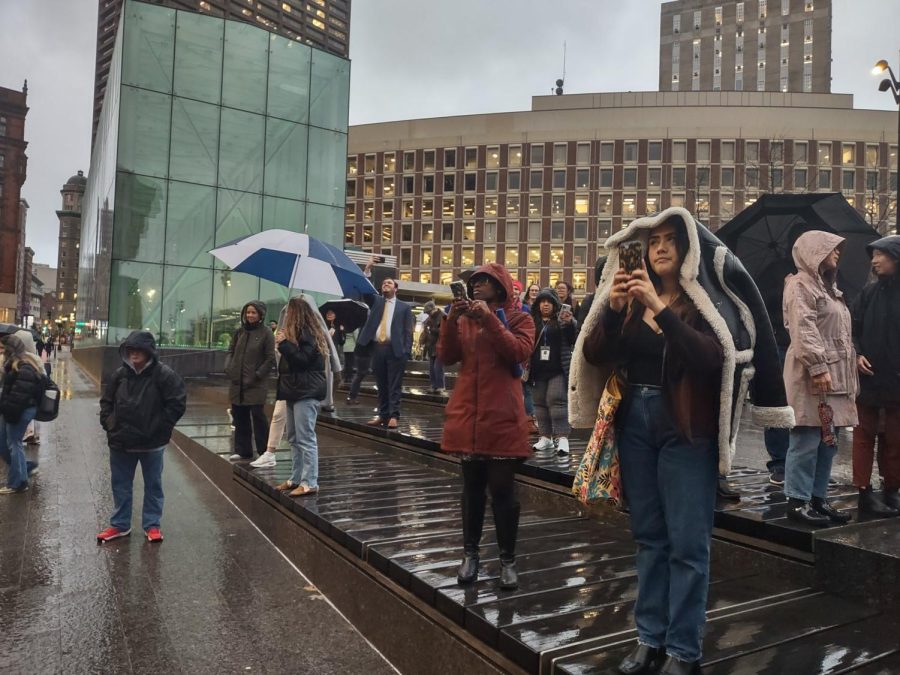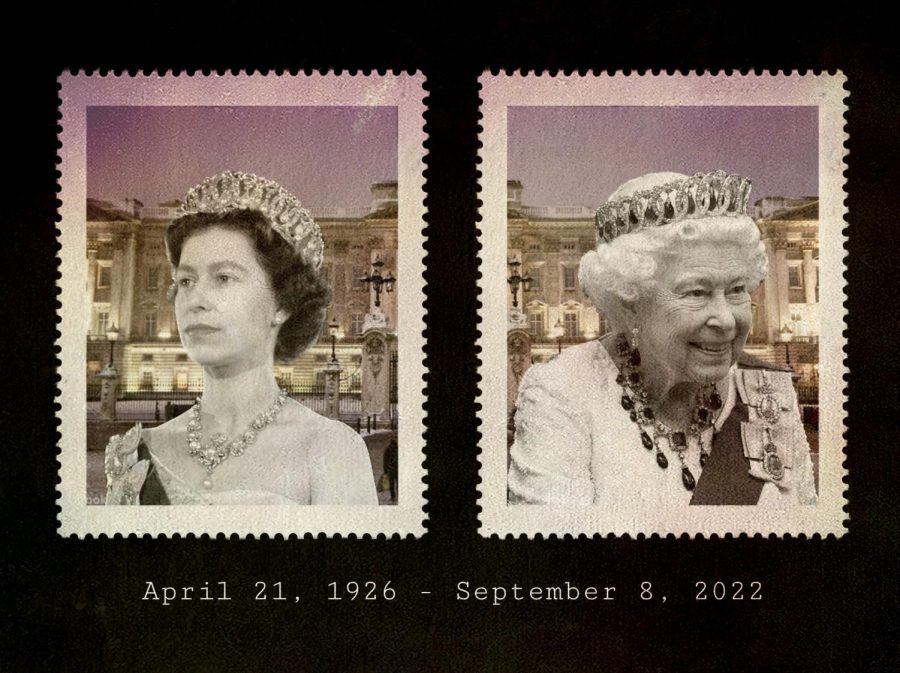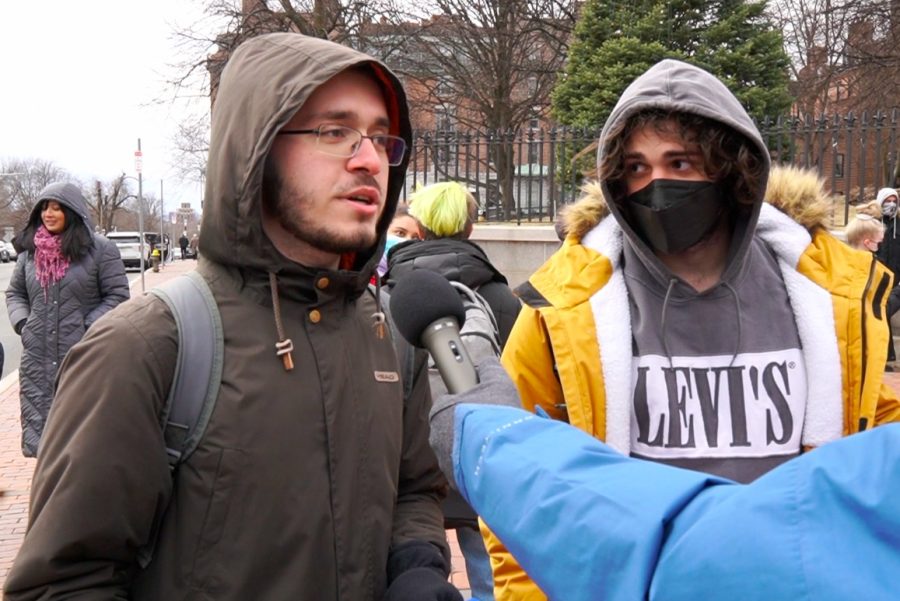Thousands of refugees fleeing the war in Ukraine have sought asylum in neighboring Poland, following the Russian invasion of Ukraine last week.
After eight years of stalemate war beginning in 2014 when Russia annexed Ukraine’s Crimean Peninsula and supported pro-Russian separatists in Ukraine’s eastern Donbas region, tensions have risen once again between the two countries in Eastern Europe.
These tensions culminated when Russia launched a full-scale invasion into Ukraine on Feb. 24, shocking the international community and leading to widespread condemnation from NATO countries as well as the United Nations.
Rafał Fryc, who is Polish-American and a Suffolk University international relations student, explained that tensions are currently high in Poland regarding the future of the conflict in neighboring Ukraine, and that Poles have been doing everything they can to support Ukrainian refugees coming to their country.
“The current situation is getting worse, since there are a lot more people trying to cross the border,” Fryc said. “Poland has been constantly taking in refugees since 2014, and I have seen the situation myself since my family is from near the border with Ukraine. There are constantly buses bringing in refugees from across the border, and now I imagine there are a lot more buses.”
Fryc came to the U.S. when he was young from Rzeszów, a city in southeastern Poland which is just over 100 km (63 miles) from the Ukrainian border. Rzeszów has become one of the main points of entry for Ukrainian refugees seeking asylum in Poland throughout the past eight years, and in the last week city officials as well as police and border guards have become overwhelmed.
“The Polish people are definitely very open and accepting of taking in Ukrainian refugees, and I am sure they are treating them with respect,” Fryc said. “However, it is a logistical nightmare, there are literally hundreds of thousands of people at the border trying to come in all at once, and I do believe that the border guards are doing everything that they can, but something like this will definitely take time.”
Many political analysts have called this invasion one of the largest attacks on a sovereign nation in Europe since World War II, and the lowest point in the relationship between Russia and the western allies of NATO since the Cold War.
Paraska Tolan Szkilnik, a professor of history, language and global culture at Suffolk, said that while she applauds the support Europeans and Americans have shown Ukrainian refugees, it saddens her that other refugees are not always given the same treatment.
“If a refugee is Syrian, Palestinian, Afghani or from anywhere in the world, they deserve the same open arms we are giving the Ukrainians now,” Tolan Szkilnik said. “The fact that there is such a difference in discourse is of course not a surprise to me.”
Immigrants from the Middle East and Africa have historically been discriminated against, and Tolan Szkilnik said that while her Eastern European grandparents faced discrimination when they moved to the suburbs of Paris, they were eventually able to integrate.
“Now, other than my name, there is nothing in me that would stand out in France. The descendants of Algerian, Moroccan or Senegalese immigrants are not afforded the same invisibility in French society,” Tolan Szkilnik said. “I believe it is our duty to welcome all refugees of war, be they Ukrainian, Syrian or Central African.”
Several world leaders publicly denounced Russian President Vladimir Putin and the Russian invasion and spoke out in support of the Ukrainian government and people, who began to fight back against the Russians after suffering substantial damages to their major cities from bombings and military raids.
Amongst the most vocal critics of Putin’s administration are Polish Prime Minister Mateusz Morawiecki and President Andrzej Duda, who have called for the boycott of Russian imports to Poland, and requested that the European Union enact sanctions on Russia in order to starve out the Russian economy and prevent the Russian government from funding its military’s war efforts.
Upon the outbreak of war in Ukraine, millions of Ukrainians have evacuated their country in what has become one of the largest refugee crises in Europe in the last century. The majority of these refugees have been women, children and the elderly, who fled from the clashes and bombardments in their home country.
The majority of men have been forced to stay home and defend their country, as Ukrainian President Volodymyr Zelensky enacted martial law and declared that all men ages 18-60 will be enlisted in the Ukrainian armed forces.
Since 2014, millions of refugees have fled Ukraine, with the majority going to neighboring Poland. The Polish government alone has granted 2 million Ukrainian nationals asylum status in their country throughout the last eight years.
Poland, a country which borders Ukraine to the west, has been one of Ukraine’s primary supporters since the outbreak of the war eight years ago. Although they share a long and often turbulent history, Poland has nevertheless supported Ukraine in its efforts to join both the European Union and NATO, ever since Ukraine gained its independence from the Soviet Union.
Additionally, Poland has viewed Russia as one of its oldest enemies and main aggressor in the region, as both the Russian Empire and the Soviet Union occupied Poland for many years, committing hundreds of war crimes on Polish soil and even ethnic cleansing and genocide against the Polish people.
Therefore, the suffering of the Ukrainian people at the hands of the Russians combined with the close proximity of the war are major factors as to why Polish society has empathized with Ukrainians fleeing the war and supported the opening of Polish borders to Ukrainian refugees.
Poland has been a member of NATO since 1999, 10 years after the country freed itself from occupation by the Soviet Union, and has been one of the largest military and weapon suppliers to Ukraine and other former members of the Soviet Union ever since.
While relations between Poland and Russia have also been poor ever since the fall of the Soviet Union, they have deteriorated even more in the past year. This is not only due to the recent tensions between Russia and Ukraine, but also due to ongoing political conflict and a recent border crisis with Poland’s other eastern neighbor Belarus, which happens to be Russia’s main ally in Europe.
“I have spoken to all of my family members back in Poland and they all agreed that this [invasion] is not going to stop in Ukraine,” Fryc said. “Should Putin take all of Ukraine, then Poland is next, and because of that, I think Poland should be getting ready for a full-scale invasion just as we have seen in Ukraine.”
“My family seems very willing and accepting to the idea of me being drafted, because ever since we were kids, we were taught that a day will come when you have to once again fight for your independence against Russia,” he added.
According to a recent report from the Polish border guards, since the Russian invasion on Feb. 24, the Polish government has accepted 1.27 million refugees from Ukraine, the most of any country in the world, and many Polish citizens have offered their homes to refugees in need, with some going as far as crossing the border to deliver humanitarian aid to refugees lined up at the border.



